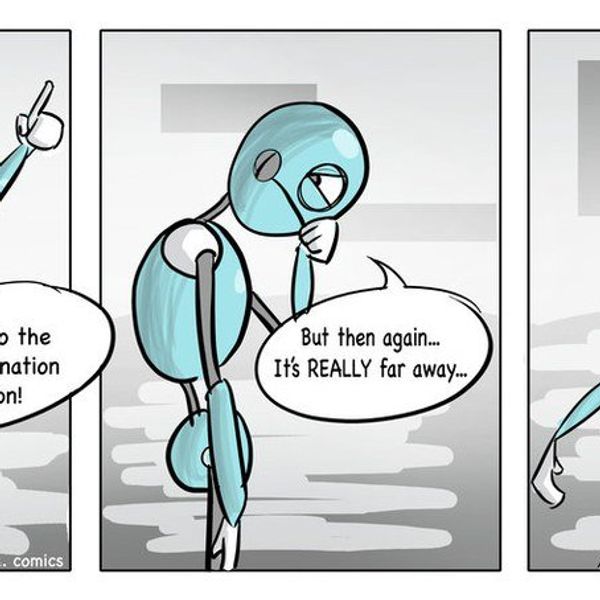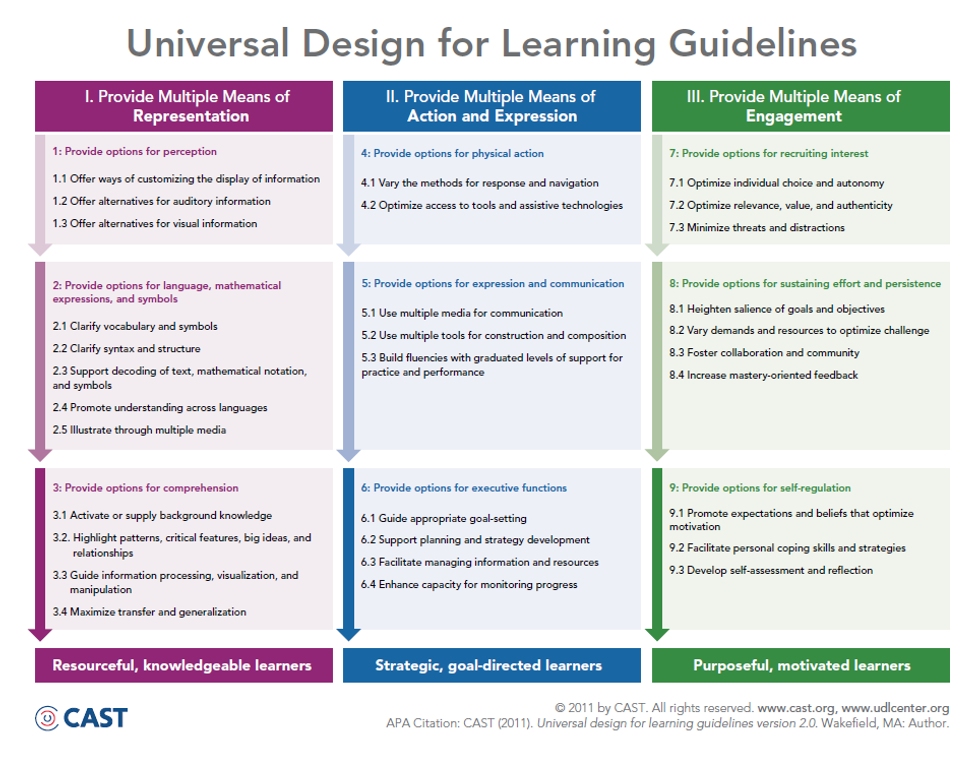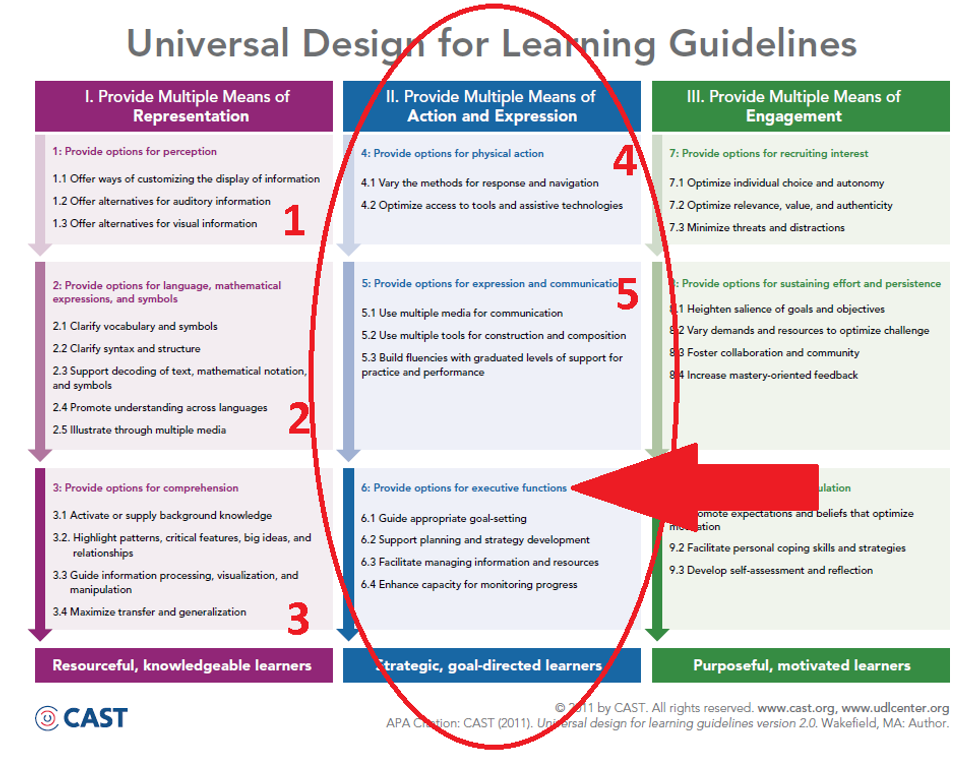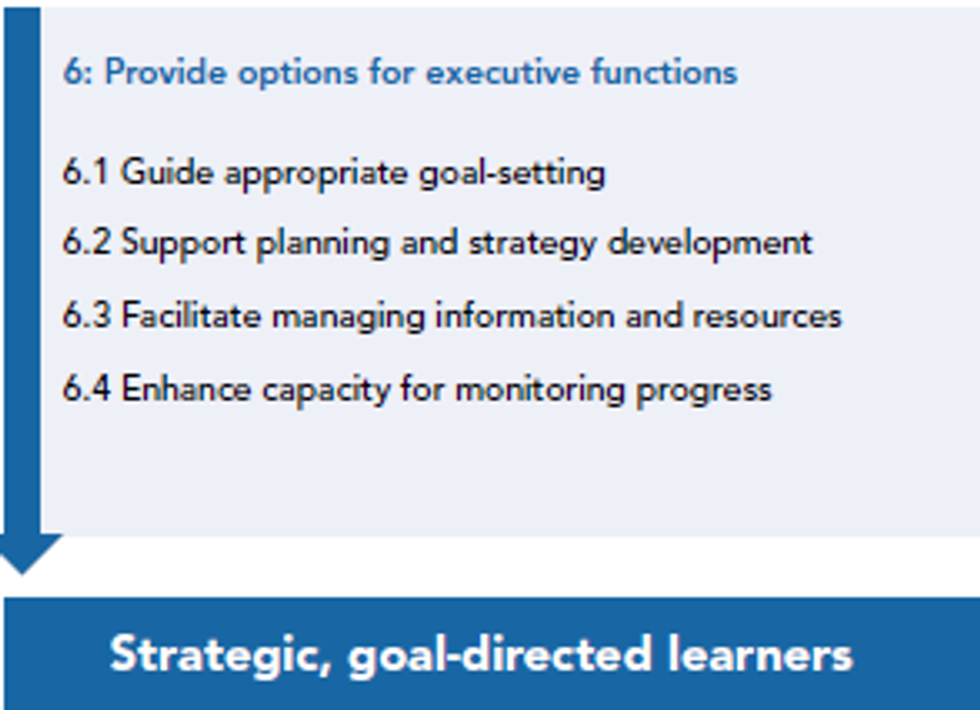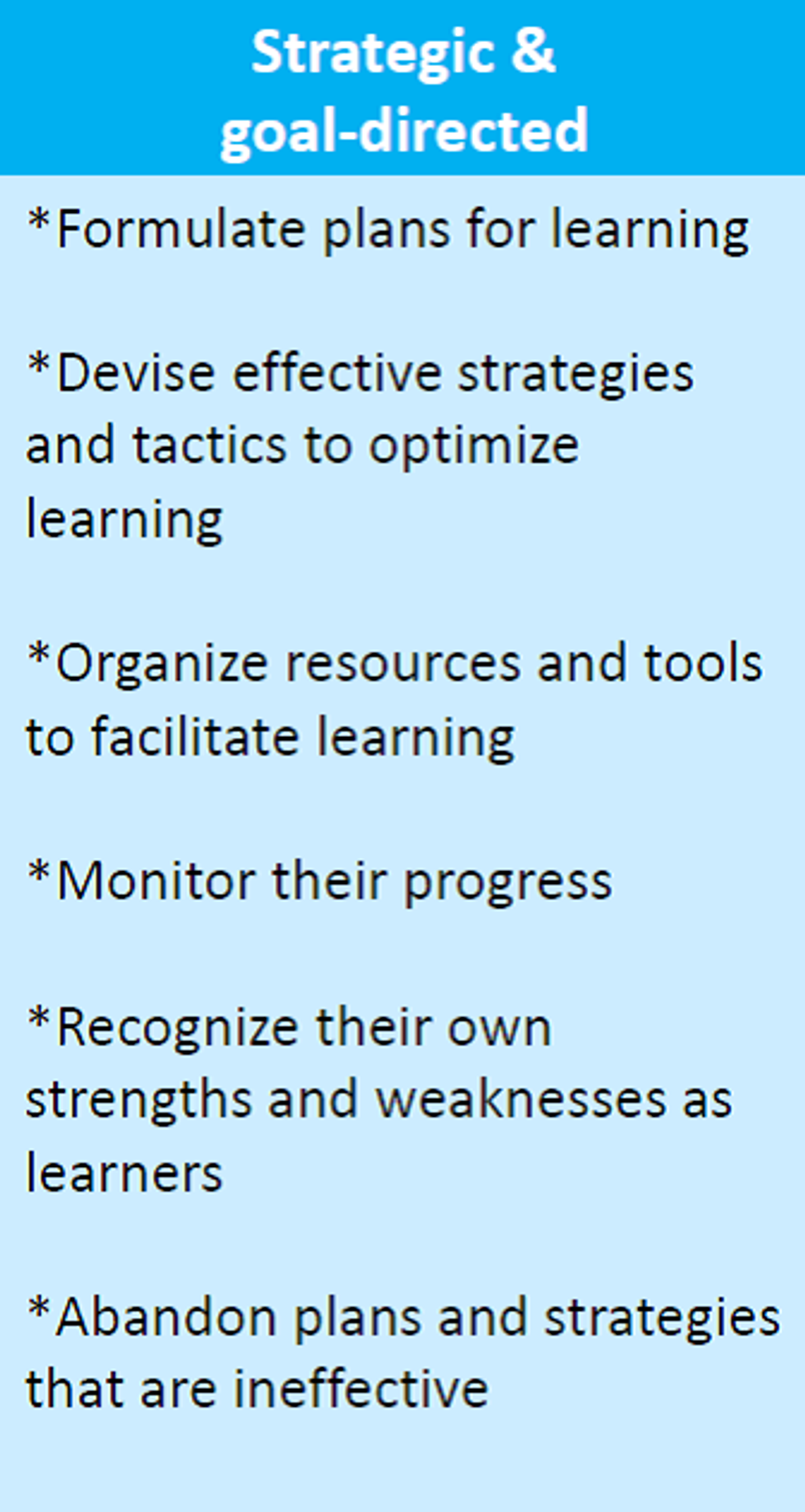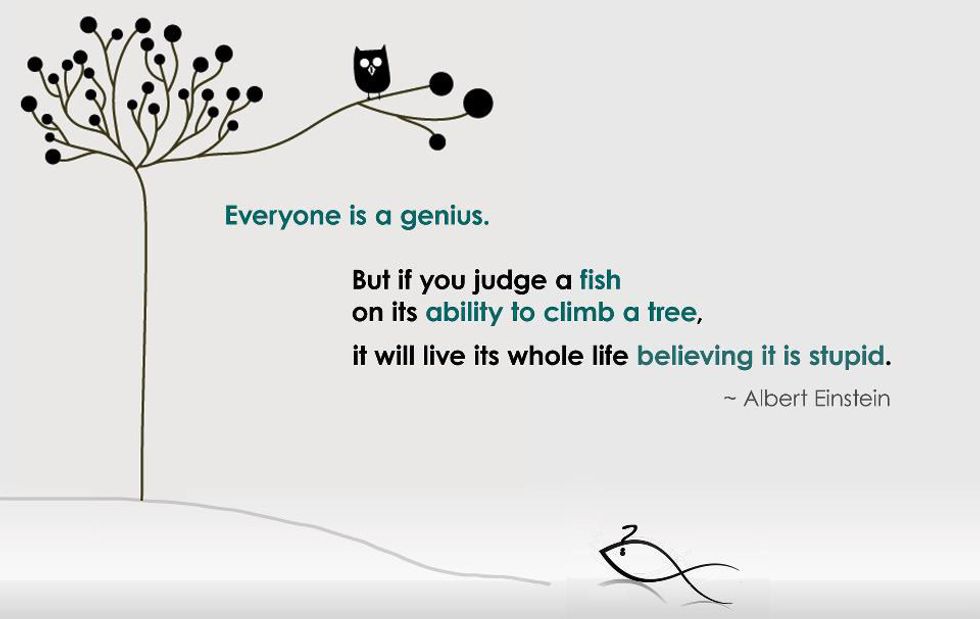As we continue a closer look at the Strategic Network, the principle of Action and Expression or the How of Learning we are ready to move to guideline 6! We previously focused on guideline 5 associated with the principle of action and expression: options for expression and communication (see article) Universal Design for Learning: Deeper Dive 5 and options for physical action: Universal Design for Learning: Deeper Dive 4. For more information on the other preceding guidelines associated with the recognition network see guideline 1: options for perception: Universal Design for Learning: Taking a Deeper Dive, guideline 2: options for language, mathematical expressions, and symbols: Universal Design for Learning: Taking a Deeper Dive 2 and guideline 3: options for comprehension: Universal Design for Learning: Deeper Dive 3.
Quick Recap about UDL: Starting with the base knowledge that Universal Design for Learning (UDL) is a framework for designing and delivering instruction based on the three networks of the brain associated with learning:
1. The Recognition Network or the What of learning
2. The Strategic Network or the How of learning
3. The Affective Network or the Why of learning (CAST 20012)
The three broad networks support the three principles of UDL (I) Provide multiple means of representation; (II) provide multiple means of action and expression; and (III) provide multiple means of engagement” (Rose & Meyer, 2002) and the subsequent nine guidelines (diagram below).
We now move to guideline 6: options for executive functions associated with the strategic networks of the brain. It is important to be reminded again that the networks of the brain do not work in isolation. When speaking to the strategic network it is important to highlight as well that the “strategic networks are highly specialized in several ways” (Meyer, Rose, & Gordon p. 74). Another amazing component of the strategic network that has come to light in recent years is “that the proportion of motor cortex devoted to any specific type of movement is altered by learning” (Meyer, Rose, & Gordon p. 74).
Therefore, it is critical to understand the role brain plasticity and a growth mindset play in the process of learning. The understanding that our brains actually grow and specialize based on our learning is paramount not just to a student’s perception of who they are but who they can be. Furthermore, since the brain is naturally goal-directed is important to also bear in mind that executive functioning is intimately tied to the affective network of the brain associated with the principle of engagment. (Which we will begin in our next installment.) According to Lord Nelson: “unless the student desires a specific outcome, the creation of a goal will not make a difference” (p. 85).
Let’s zero in on our third guideline under the principle of action and expression: guideline 6: options for executive function (below).
What: Options for executive function simply put are options to plan, strategize and initiate action. Executive functioning is about how students utilize skills and devise effective strategies to: set long term goals, achieve goals, monitor progress, and modify strategies. Strategic and goal-directed learners according to CAST (2012) know how to:
How: So, how do we plan for and provide students with the necessary scaffolding and options to become strategic and goal-directed? First we acknowledge variability as the rule and not the exception. We acknowledge the importance of context and from there begin to ask some questions:
- Have I allowed students to set their own goals?
- Have I taught the skills to help students set realistic goals?
- What supports are in place for students to “stop & think” about meeting goals?
- Have I honored working memory?
- Have I given timely/informative feedback?
- What organizational tools, checklists, or timelines are in place to support the student in the learning process?
Possible options to provide are:
Why: It is easy in today’s educational political landscape of high stakes standardized testing tied to funding and teacher pay to think and focus on how much students know about “stuff”. Yes, we are in the business of “stuff” or more appropriately knowledge of content and information. However, in the words of the old Chinese proverb: If you give a man a fish you feed him for day, if you teach him how to fish you feed him for a lifetime. I contend that if you: Teach a student to a test he may learn to comply for a given day and time, if you teach him how to learn he will experience meaningful lifelong learning!
CAST, Inc. (2012) Retrieved from:http://www.udlcenter.org/aboutudl/whatisudl
Meyer, A., Rose, H. D., Gordon, D. (2014). Universal Design for Learning, theory and practice. Wakefield, MA: CAST Professional Publishing.
Lord Nelson, Loui. (2014) Design and Deliver: Planning and Teaching Using Universal Design for Learning. Baltimore, MD: Brookes Publishing.

